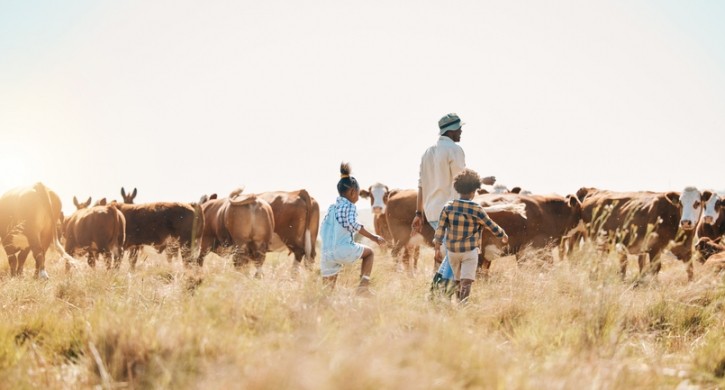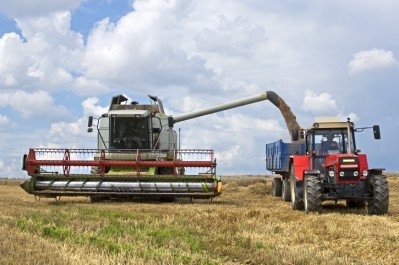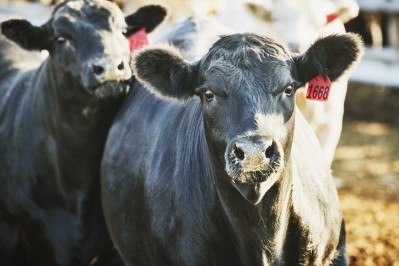Gates Foundation backing BiomEdit’s work on methane blockers for beef and dairy cows

That’s the goal that microbiome-focused BiomEdit scientists have set themselves, and they have secured a $4.5m grant from the Bill & Melinda Gates Foundation to accelerate R&D in that space.
BiomEdit's solutions target the rumen microbiome, where specific microorganisms are responsible for methane production. The company is taking a multi-pronged approach to leveraging probiotics and bioactives that, it claims, reduce methane emissions and increase cattle performance by inhibiting energy losses through methanogenesis and enhancing production of volatile fatty acids (VFA).
“Proprietary lab and early stage research has identified precision-biotics and biologics that reduced methane and show increase in VFAs. The team is working to build on these findings for future testing and delivery modalities," Aaron Schacht, CEO of BiomEdit, told FeedNavigator.
BiomEdit's methane reduction R&D program team alone holds over 50 patent applications and more than 200 peer-reviewed scientific publications. And the company plans to collaborate with leading experts in rumen microbiome analysis at key academic research institutions on this project.
Environmental and economic sustainability in Africa and South Asia.
BiomEdit maintains that its portfolio of solutions has the potential to significantly impact agricultural greenhouse gas (GHG) emissions while enhancing the livelihoods of producers, especially in sub-Saharan Africa and South Asia, providing greater food security.
Significantly lowering agricultural GHG emissions on large- and small-scale operations, in tandem with enhancing the livelihood of small-scale producers and pastoral communities in Africa and South Asia, where cattle are a vital source of income, would have multiple benefits.
Livestock contribute up to 80% of developing countries’ agricultural GDP and they serve as an important source of nutrition and livelihood for small-scale producers and pastoral communities, noted the International Livestock Research Institute (ILRI). Finding a way to reduce methane emissions in native cattle in their local habitat while increasing productivity is key to environmental and economic sustainability, particularly for Africa and South Asia, said the developer.
“To make a meaningful impact on climate change, there must be a simultaneous benefit of reducing methane emission in cattle plus redirecting the spare energy, which would otherwise go to creating methane, to increasing feed efficiency so everyone can benefit from nutritious meat and milk - no matter where they are in the world. The answer is found through the microbiome and synthetic biology,” continued the CEO.
Pathways to administer the BiomEdit methane blockers could take the form of feed additives, feed supplements, veterinary biologics, or pharmaceuticals.
Microbiome science
Established in April 2022, and headquartered in Fishers, Indiana, in the US, BiomEdit leverages the assets and technology of Elanco and Ginkgo Bioworks. It was launched with a $40m Series A funding round that saw participation from Ferment, Viking Global Investors, and Anterra Capital.
The startup is focused on the development of animal health products through the exploitation of microbiome science. It wants to improve animal health, animal protein production and livestock disease monitoring. Its cell programming platform forms the foundation of its R&D program, utilizing high throughput sequencing and data analytics to rapidly discover and screen novel beneficial bacteria, peptides, and metabolites.
Carbon insetting
An issue with many methane blockers currently available is that the onus is typically on farmers to pay for them, but, with limited ROI, producers don't often see the advantages of doing so. Instead, developing methane mitigation products that can improve production efficiency and pay for themselves will make this approach financially feasible for farmers, encouraging them to participate, argues BiomEdit.
In October, the startup announced an alliance with Athian, a cloud-based carbon marketplace for the livestock industry. It helps livestock producers capture and claim carbon credits earned through sustainability efforts by aggregating, validating, and certifying GHG reductions, while monetizing those for the producer through the sale of carbon insetting credits.















